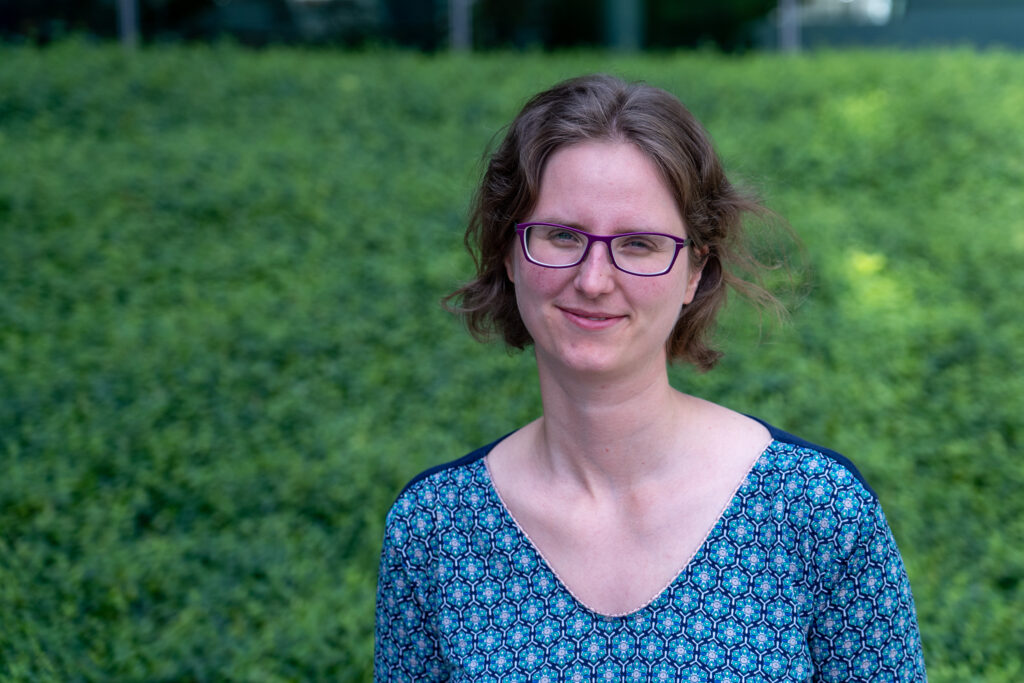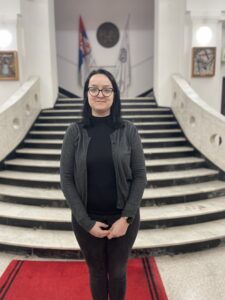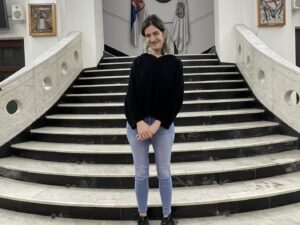Interview with Ingrid Keupers during the Journey, De WaterGroep, Belgium
May 2021
Joining EJWP was the right move for me because I’ve always been interested in the social aspects of water. I responded to a call within my company to participate, and was happy to be chosen. Our activities and trainings broaden my view on water problems and how they’re dealt with on a European scale. We have similar issues in Belgium, and I really see the need to cooperate more with our counterparts in neighbouring countries.
I’m originally from Belgium, with a bachelor’s in environmental engineering, masters in water resources engineering with studies in sociology, and a PhD in water quality modelling. Before finishing my PhD, I saw an opportunity with the largest drinking water utility of Flanders. I was the first hydrologist in De Watergroep working on modelling the quantity and quality of surface water sources. That’s where I am today.
Working in teams with people of different views is one of the high points of EJWP for me. We evaluate our interactions and are more aware of the functional aspects of our differences, and their impact on tasks at hand. Role play is part of the personal training weeks, so it brings the subject to life. A master class on water complexity made me think about how we approach complex problems and can make changes in our ways of working. This was inspirational! We’re currently working on a Value of Water project, so we will definitely be able to take some master class lessons into our work on this. Before going online with the programme because of Covid, it was good to interact with the hosting organizations in our visits to the different countries. It would be even more interesting if we could interact with more of the staff of the organizations, in addition to their EJWP participants.
I like to delve deeper to discover different working perspectives. I also like to go out of my comfort zone and do things differently, such as traveling in a gap year to Guatemala, where there was little quality tap water and I became ill three times because of drinking polluted water. This was perhaps a motivation for me to work in the water sector.
EJWP training is important for water personnel and organizations because many of today’s water-related problems cannot be addressed within the water sector alone. Agriculture, industry and other sectors require a mind shift to align contributing factors for solutions. Therefore, we have to develop a broader outlook within the water sector. There are a lot of younger people in our organization, but there should be even more new hires before the seniors retire, so we retain valuable lessons learnt. We may also need more young professionals in order to face challenges of the future.
Knowledge still remains a key challenge. It would be nice to see problem identification and solution implementation applied across other sectors with a focus on their use of and impact on water. At the European level, policy makers set up systems, but there is a need for a growing awareness of cross-sectorial effects, because people may not realize what is happening that is actually beneficial for them. Because of this, some motivation to improve may be lost. Together, we can work towards a better water quality, by focusing on the right investment priorities and the political will to do so.
The most challenging EJWP exercise so far for me was the solo project on personal development, and setting up a plan. This was confrontational, because we were made to think about things we don’t usually dwell on – operating in a more planned project structure. In one of the other projects, we looked ahead at the water sector in 50 years, with brainstorming to identify possible future trends.
Regarding personal-professional development, I have three young children, and I’ve seen how this can create a barrier to some working mothers, so a broader mindset in the industry could be helpful for parents, especially mothers, with young children. It should not make a difference, but sometimes it still does. I think that the most valuable part of the EJWP program for me has been the personal professional trainings to work and learn together as a team. Jennifer is a good trainer. It’s an added value that it’s the same person leading the trainings – so we can set a routine to explore more in depth.
I see ensuring drinking water quality as one of our greatest future challenges. People don’t realize the pressure that exists on our drinking water sources. Risks to water safety are rising, as some pollution policies are still not properly enforced. Some people think that nearly everything concerning drinking water quality can be solved with an end-of-pipe technology. They are however searching for simple mechanical solutions to complex problems. Tackling pollution problems at the source, instead of relying on purification techniques afterwards, is a better way.
Nature-based solutions on source protection are a key to accomplishing some needs, and technology can optimize this approach. However, we still need more effective implementation some great existing technology in the water sector. The different views and values provided in the EJWP program help think out of the box when working on these complex problems we face. We will never see everything, so different perspectives are valuable when working on an international scale, and might help overcome these implementation issues.
Introduction at start of EJWP
June 2019
I am passionate about (drinking) water ever since I have lived in an area were potable tap water was not readily available (Guatemala). At university, I have chosen to follow an international Master’s program, Masters of Water Resources Engineering, to gain more knowledge and insight into the water system. After completion of this Master’s program, I pursued a PhD with as title “Integrated river water quantity-quality modelling”. I am currently working as an hydrologist for De Watergroep, the largest drinking water utility in Flanders, serving drinking water to 3 million people. I am following up everything related to the quantity and quality of the sources of our surface water treatment plants among other things modelling, advising permit request, policy making, monitoring.
I am joining the EJWP as I believe this is a once in a lifetime opportunity to go out of my comfort zone to learn new things and meet new people. I strongly believe that within Europe many problems we face with regard to the water system are similar e.g. drought, pollution. Thus we can learn from each other and see how others tackle problems instead of reinventing hot water. Doing this in a sustainable and equitable way is important to me personally as a mother of two boys and a girl (7.5, 6 and 2.5 years). In my spare time I like to go walking and be creative (sewing clothes, hand lettering, painting, ..).






